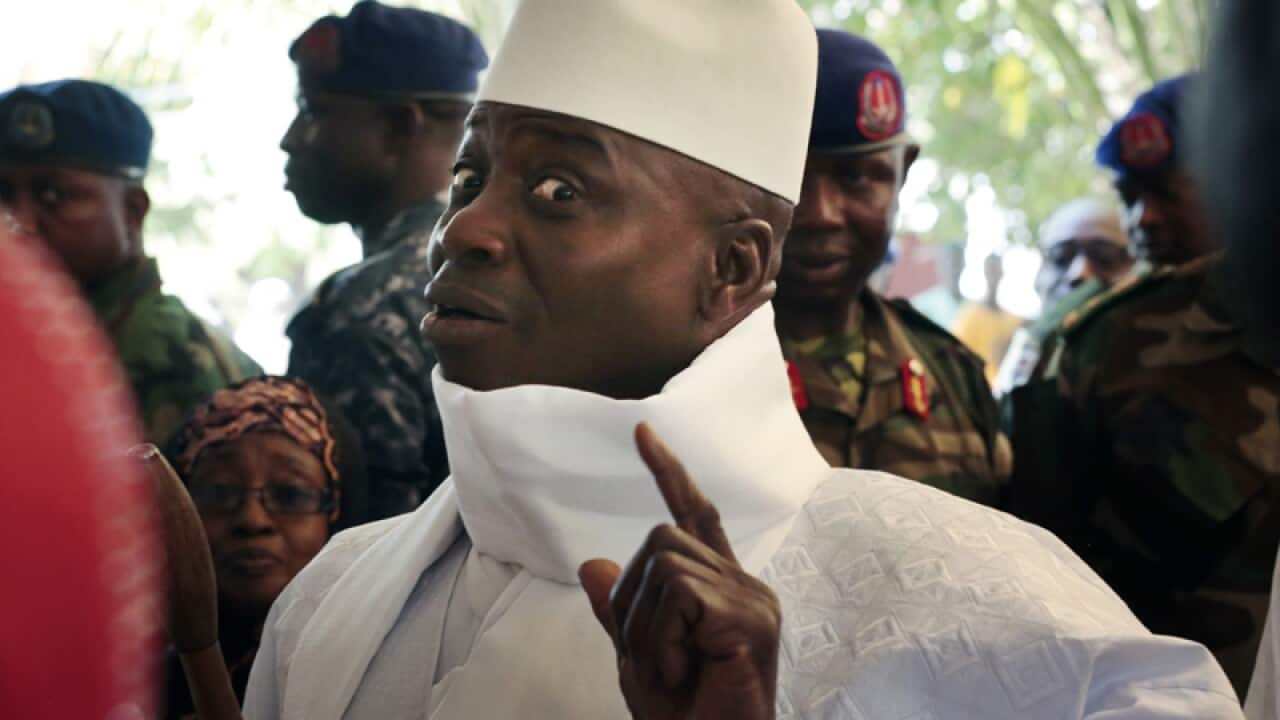Gambia's President Yahya Jammeh will challenge the results of a December 1 election in the Supreme Court, the ruling party says, raising the prospect that a shock opposition victory that was poised to end 22 years of autocratic rule will be overturned.
Celebrations erupted across the tiny West African nation last week when Jammeh unexpectedly conceded defeat after the elections commission announced the victory of opposition candidate Adama Barrow.
However, in a dramatic about-face that drew international condemnation, the mercurial former coup leader on Friday decried "serious and unacceptable abnormalities" and called for fresh polls.
In a statement broadcast on state television late on Saturday, the Alliance for Patriotic Reorientation and Construction (APRC) said it was preparing a petition "against the flawed decision of the Independent Elections Commission".
There is no sitting Supreme Court in Gambia, though there is currently a chief justice, who is Nigerian. In order to hear Jammeh's complaint, legal experts believe at least four other judges must be hired.
Rights groups say Jammeh exerts strong influence over the court.
"The election results were correct, nothing will change that," elections commission head Alieu Momarr Njai told Reuters on Sunday. "If it goes to court, we can prove every vote cast. The results are there for everyone to see."
Barrow, who has pledged to serve as a transitional leader and step down after three years, said on Saturday that Jammeh had no constitutional authority to reject the poll results.
The residence in the capital Banjul where Barrow was staying on Sunday was surrounded by around 30 unarmed supporters who said they were providing security after the police and military declined to protect him.
Banjul was calm though armed soldiers were visible in the streets and manning checkpoints on some roads in the city.
The head of the Gambian army pledged allegiance to Barrow last week, however a regional diplomatic source who said he had spoken to the president-elect told Reuters he did not feel safe.
Omar Jallow, head of the People's Progressive Party which backed Barrow in the election, said Jammeh's actions were "nothing more than a coup d'etat."
Jammeh has long had a troubled relationship with the international community due to accusations of human rights violations including the repression of political opposition and threats of violence and death against homosexuals.
His U-turn on Friday drew condemnation from the United Nations, African Union, European Union and the United States.

